French presidential election: factory worker Poutou emerges as star of TV debate
by WILLSHER Kim
 The 11 presidential candidates faced off in a live televised debate, with anti-capitalist Poutou goading rivals over their integrity. A little-known candidate emerged as the star of the televised French presidential debate after challenging two of the frontrunners over their honesty and implication in fraud scandals.
The 11 presidential candidates faced off in a live televised debate, with anti-capitalist Poutou goading rivals over their integrity. A little-known candidate emerged as the star of the televised French presidential debate after challenging two of the frontrunners over their honesty and implication in fraud scandals.
The militant Philippe Poutou, of the New Anti-capitalist party, weighed into the far-right favourite, Marine Le Pen, and conservative François Fillon, who are both under investigation for misuse of public funds.


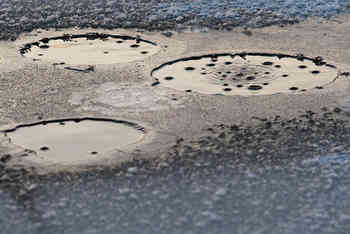 On a lake, plumes of gas, most likely methane from the breakdown of carbon in sediments below the lake, keep the water from freezing in spots, outside Fairbanks, Alaska, October 21, 2011. As the Arctic warms, the threat of abrupt methane releases is rising, too. (Photo: Josh Haner / The New York Times)
On a lake, plumes of gas, most likely methane from the breakdown of carbon in sediments below the lake, keep the water from freezing in spots, outside Fairbanks, Alaska, October 21, 2011. As the Arctic warms, the threat of abrupt methane releases is rising, too. (Photo: Josh Haner / The New York Times) 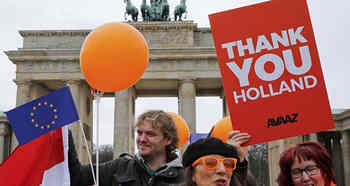 This is ridiculous. Avaaz is circulating a petition to thank the "Dutch people" (whoever that may be) for "choosing hope, unity, and dialogue over hate, fear and old fascist rhetoric." They even claim that, "by rejecting Geert Wilders you've helped stop the rise of the far right everywhere." More generally, the coverage of these elections in the international press has been a complete disaster.
This is ridiculous. Avaaz is circulating a petition to thank the "Dutch people" (whoever that may be) for "choosing hope, unity, and dialogue over hate, fear and old fascist rhetoric." They even claim that, "by rejecting Geert Wilders you've helped stop the rise of the far right everywhere." More generally, the coverage of these elections in the international press has been a complete disaster. Les retours revanchards de néolibéraux aux gouvernements de certains pays d’Amériques latines remettent-ils en question les expériences d’émancipation des dernières décennies ? Les réalités sont plus complexes, nous dit Franck Gaudichaud.
Les retours revanchards de néolibéraux aux gouvernements de certains pays d’Amériques latines remettent-ils en question les expériences d’émancipation des dernières décennies ? Les réalités sont plus complexes, nous dit Franck Gaudichaud.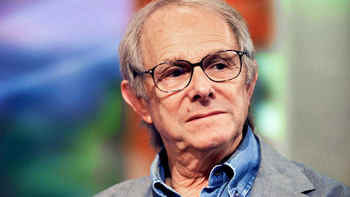 In the parts of Britain that have been left to rot, people support Jeremy Corbyn’s policies. So why aren’t MPs promoting them?
In the parts of Britain that have been left to rot, people support Jeremy Corbyn’s policies. So why aren’t MPs promoting them? Voici rassemblés divers essais de Walter Benjamin, parmi lesquels, le douloureux Franz Kafka, mélancolique étoile jumelle. Avec Kafka, Benjamin partage en effet cet « étrange mal de mer sur la terre ferme », de celui qui ne pourra jamais jeter l’ancre, condamné à errer entre deux langues, entre deux mondes, dans une Europe des Lumières en pleine déroute. Ni l’un ni l’autre ne pourront entreprendre le retour identitaire en Palestine, où déjà se profilent les nouvelles idoles de la raison d’État, et Kafka se fracassera sur ses invisibles frontières intimes. Benjamin viendra s’écraser sur le passage muré des Pyrénées, comme incapable de s’arracher à une vieille culture en train de s’effondrer.
Voici rassemblés divers essais de Walter Benjamin, parmi lesquels, le douloureux Franz Kafka, mélancolique étoile jumelle. Avec Kafka, Benjamin partage en effet cet « étrange mal de mer sur la terre ferme », de celui qui ne pourra jamais jeter l’ancre, condamné à errer entre deux langues, entre deux mondes, dans une Europe des Lumières en pleine déroute. Ni l’un ni l’autre ne pourront entreprendre le retour identitaire en Palestine, où déjà se profilent les nouvelles idoles de la raison d’État, et Kafka se fracassera sur ses invisibles frontières intimes. Benjamin viendra s’écraser sur le passage muré des Pyrénées, comme incapable de s’arracher à une vieille culture en train de s’effondrer. “...ellos no comprenden la utilidad inmensa de la diversidad de las doctrinas. Cada matiz, cada escuela tiene su misión a cumplir, su parte a jugar en el gran drama revolucionario y si esta multiplicidad de sistemas os pareciera funesto, usted desconocería la más irrecusable de las verdades: ’La luz solamente surge de la discusión’.”
“...ellos no comprenden la utilidad inmensa de la diversidad de las doctrinas. Cada matiz, cada escuela tiene su misión a cumplir, su parte a jugar en el gran drama revolucionario y si esta multiplicidad de sistemas os pareciera funesto, usted desconocería la más irrecusable de las verdades: ’La luz solamente surge de la discusión’.”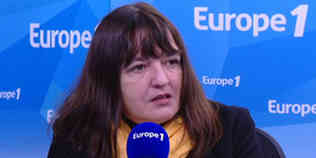 La crise grecque est toujours là. Les responsables européens et le FMI ont lancé un nouvel ultimatum à Alexis Tsipras. Il a trois semaines pour présenter de nouvelles mesures d’austérité. Épuisé, le pays est au bord de l’effondrement financier, économique et moral. Des responsables de Syriza parlent de sortir de l’euro.
La crise grecque est toujours là. Les responsables européens et le FMI ont lancé un nouvel ultimatum à Alexis Tsipras. Il a trois semaines pour présenter de nouvelles mesures d’austérité. Épuisé, le pays est au bord de l’effondrement financier, économique et moral. Des responsables de Syriza parlent de sortir de l’euro. 56 years ago today, Congolese prime minister and anticolonial leader Patrice Lumumba was assassinated.
56 years ago today, Congolese prime minister and anticolonial leader Patrice Lumumba was assassinated.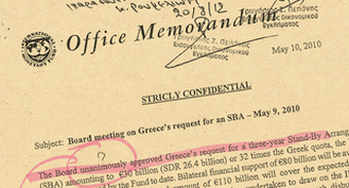 The CADTM draws attention to two IMF documents dating from March and May 2010 that were kept secret. These authentic documents were placed at the disposal of the Truth Committee on Greek Public Debt by Zoe Konstantopoulou, the President of the Hellenic Parliament in office from 6 February to 3 October 2015.
The CADTM draws attention to two IMF documents dating from March and May 2010 that were kept secret. These authentic documents were placed at the disposal of the Truth Committee on Greek Public Debt by Zoe Konstantopoulou, the President of the Hellenic Parliament in office from 6 February to 3 October 2015. As a Syrian who has always identified politically with the left, I am particularly appalled by those men and women who call themselves left-wingers — and are therefore supposed to stand in solidarity with struggles for justice worldwide — and yet openly support the regime of the Assads, father and son, who are chiefly responsible for the Syrian disaster.
As a Syrian who has always identified politically with the left, I am particularly appalled by those men and women who call themselves left-wingers — and are therefore supposed to stand in solidarity with struggles for justice worldwide — and yet openly support the regime of the Assads, father and son, who are chiefly responsible for the Syrian disaster.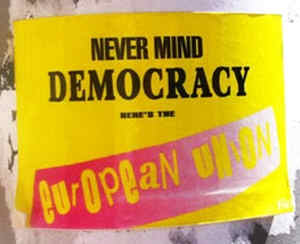 En matière de déni de démocratie, il y a eu évidemment l’illustre précédent du résultat, jamais respecté, du referendum français de 2005 sur la constitution européenne. Mais quand même, ce qui s’est passé en Grèce en ce funeste mois de juillet 2015 n’a pas son pareil dans l’histoire de l’Europe (anti)démocratique. Jugez-en vous-même…
En matière de déni de démocratie, il y a eu évidemment l’illustre précédent du résultat, jamais respecté, du referendum français de 2005 sur la constitution européenne. Mais quand même, ce qui s’est passé en Grèce en ce funeste mois de juillet 2015 n’a pas son pareil dans l’histoire de l’Europe (anti)démocratique. Jugez-en vous-même… If the very worst happens, it won’t be because we didn’t know that it might happen. We have all been amply warned.
If the very worst happens, it won’t be because we didn’t know that it might happen. We have all been amply warned.  Fed up with slow (or in some cases,
Fed up with slow (or in some cases, 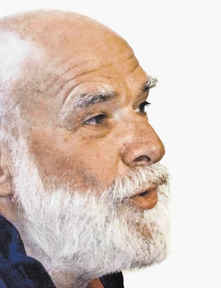 The present study shows that the Greek crisis that broke out in 2010 originated in private banks, not in excessive public spending. The so-called bail-out was designed to serve the interests of private bankers and those of dominant countries in the Eurozone. Greece adopting the euro played a major role among the various factors that contributed to the crisis. The analysis developed here was first presented in Athens on 6 November 2016 during a meeting of the Truth Committee on Greek Public Debt.
The present study shows that the Greek crisis that broke out in 2010 originated in private banks, not in excessive public spending. The so-called bail-out was designed to serve the interests of private bankers and those of dominant countries in the Eurozone. Greece adopting the euro played a major role among the various factors that contributed to the crisis. The analysis developed here was first presented in Athens on 6 November 2016 during a meeting of the Truth Committee on Greek Public Debt.